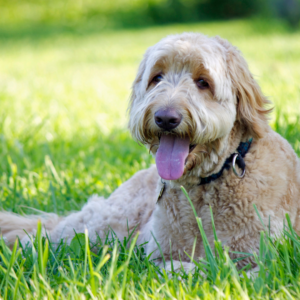How To Support Your Pets Well-Being
Support your pets well-being and they’ll return the favor by supporting yours.
I’m sure you’re aware that your dog or cat is amazing at offering you the emotional support you need. Whether snuggled up with you on the couch in the evenings or jumping on you with pure happiness when you get home from work each day, your furry friend offers the unconditional love humans need.
However, if your pet hasn’t been acting quite the same lately, it could be due to stress. Just like humans, cat’s and dog’s aren’t strangers to stress. A number of things can trigger a stress response in your furry friend and recognizing this stress when it arises is crucial for supporting your pets well-being.
There are three significant causes of stresses in your pet, and these can cause further problems to develop. If you want to help your pets first, you must know thy type of anxiety your pet is suffering from. Those three types are:
Anxiety due to fear
Anxiety due to fear is caused by strange people, animals, loud noises, strange environments, and visual stimuli such as car trips and veterinary visits. Most dogs and cats show a brief reaction to these causes, but anxious pets are more affected.
Anxiety due to age
Age-related anxiety is common in older pets and is also associated with cognitive dysfunction syndrome. Pets that suffer from age-related anxiety will experience a decrease in perception and memory. These symptoms are similar to those of Alzheimer’s disease in humans.
Separation anxiety
Separation anxiety is one of the most common forms among pets. Those pets that are too attached to their families will suffer from this when left alone. Pets suffering from separation anxiety display destructive behaviors such as barking, whining, scratching furniture, and urinating and defecating in the house.
How to help a pet suffering from separation anxiety?
Separation anxiety occurs in pets when you leave them alone for a long time, and they start to destroy your things as a result. When you return, they appear to be eagerly awaiting you. They may also appear anxious when you are preparing to leave again. If you want to help these pets, follow the steps below.
- Don’t make a lot of drama at departures and arrivals. While planning to leave the house, start ignoring your pet 15-20 minutes before departure.
- Leave recently used clothing for your pets.
- Start practicing an action or word that helps your dog understand that you will be back in a few hours.
- If the problem is severe, you can crate train dogs and even cats.
How to help a pet from being overly anxious from riding in cars or planes?
There are two reasons why your pet gets anxious during travel. First, they suffer from motion sickness, and second, they are frightened by the vehicles sound or vibration. If your pet has a motion sickness problem, it is best to limit his food and water intake before traveling and consult your veterinarian about motion sickness medications. Second, if they are afraid of the car’s sound, introduce them slowly by giving them a treat or reward. Start off with a couple of short trips around the block before headed on a long travel.
How to help a pet having anxiety from storms?
Those pets that live in areas with frequent storms are common to suffer from storm anxiety. To help these pets, there are few things you can do
- Get your pet used to the sound of thunderstorms by creating your own storm sound and pair it with something your pet loves, like treats or toys.
- Give your pets a safe place to hide, like a crate during the storm, and also provide recently used clothing, so they don’t panic.
- Give your pet’s treats and toys during the storm to keep them distracted.
How to help your hyper anxious pets?
It is best to consult your vet for the treatment of hypersensitive pets, but few things you can do at home are
- The first thing to do is to identify and remove the trigger.
- Take your pet for regular exercise. Research suggests that more exercise is associated with a lower level of aggression and fear.
- Give your dog a quiet place because at a certain point, no reward or treat is helpful, and only a quiet place can turn off anxiety symptoms.
FAQs Related to Behavior Problems in Dogs
Why do dogs eat poop?
There are different reasons why your dogs may eat their own poop, and to treat this problem, you must first know why they do it. Some significant causes of this problem are:
- Dogs can begin to eat poop due to their natural instinct. It is widespread in mothers and puppies.
- There are few health conditions in which your dog will eat his own feces, such as intestinal disorders, diabetes, Cushing’s disease, thyroid disorders, nutritional deficiencies, and parasitic infestation. Consult your Veterinarian if this continues.
- Dogs also eat poop when they are bored, anxious, or stressed. This can occur during house training sessions when the dog is punished due to any accident in the house and eats his poop to hide the evidence.
Why do dogs eat grass?
There are different reasons why your dogs eat grass. Some of the common reasons are:
- Dogs mostly eat grass to add nutrition and fiber to their diet.
- Some dogs eat grass to induce vomiting and ease their upset stomach.
- Dogs suffering from boredom are mostly seen to eat grass as a distraction too.
Why do cats purr?
When cats purr it’s usually a sign of calm and relaxation. They are purring most likely because they are happy and in a content environment. However it can also be a sign of hunger or stress. So listen closely to your kitty and adjust it’s environment if you feel he or she is purring due to anxiousness.
Conclusion
Taking care of your pet’s overall health will be best for both of you, but humans get the most benefit overall because the joy and love that our pets bring to our lives are priceless. Just take good care of your pet’s mental and physical health for their overall well-being.


